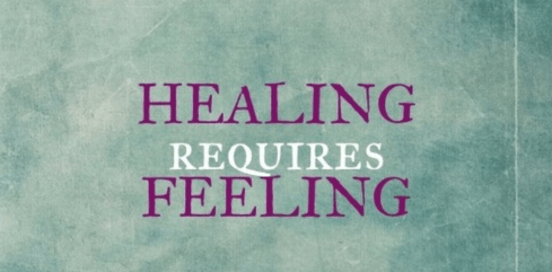We all have emotions. Some of us feel emotions at a higher intensity or frequency, but we all experience human emotions on a daily basis. Most people don’t realize that there are two main categories of emotions: natural emotions and manufactured emotions.
- What Are Natural and Manufactured Emotions?
- How Trauma Impacts Emotions
- Addressing and Treating Manufactured Emotions
In this post, we’ll discuss these different categories of emotions. We’ll also discover how manufactured emotions can develop due to traumatic experiences. By understanding the differences between natural and manufactured emotions, you’ll learn the importance of processing your feelings in a healthy way.
What Are Natural and Manufactured Emotions?
Natural emotions are hard-wired, common, biologically driven emotions. These emotions are those that come automatically, such as sadness when a loved one passes away or lust when we see someone attractive. Natural emotions need to be felt, run their course and acknowledged. They are like a fire — they burn strong and bright for a bit, but without logs or lighter fluid, will eventually die down. They will dissolve on their own when felt.
On the other hand, manufactured emotions are emotions that are not hard-wired, biologically driven or automatic. They are created as a result of our thinking or how we view the world. These emotions are like lighter fluid or logs, keeping the natural emotion burning brighter longer.
Here’s an example of how natural feelings differ from manufactured emotions.
The sadness that you felt when your mother passed away — that’s natural.
As for the guilt and self-blame you feel as a result of not taking care of her well enough or not building a stronger relationship with her before she died, those are manufactured emotions.
They are a result of your thinking and what you are telling yourself about the situation.
As you can probably see, the manufactured emotions keep the fire burning, keeps your anger bubbling, and keeps your sadness simmering. When we work through our thoughts and allow ourselves to truly feel the natural emotions, we will quit squirting lighter fluid on the natural emotions and allow ourselves to heal.
How Trauma Impacts Emotions
Individuals who experience trauma often have a difficult time processing their natural emotions. During a traumatic event, many people don’t have time to feel the natural emotions associated with that experience, like fear, sadness or anger. Instead, they must process what happened later on, leading to problematic thoughts and ideas surrounding their trauma. This process can result in inaccurate, manufactured emotions used to fill in the gaps in an attempt to answer questions such as “why did this happen to me?”
For victims of trauma, it can be all too easy to manufacture emotions. If you’re having trouble working through your natural feelings, you may start replaying the experience over and over again in your head to make sense of it. There is a good chance that manufactured emotions will develop as a result.
For this reason, individuals diagnosed with post-traumatic stress disorder often experience distorted, manufactured emotions. Where most people would feel fear or sadness when faced with the same situation, those with PTSD tend to feel guilt, shame, helplessness and blame.
Addressing and Treating Manufactured Emotions
Indulging in manufactured emotions can be dangerous. Whether you’ve experienced a trauma or not, manufactured emotions are often rooted in unhealthy beliefs about yourself, others and the world around you. These false perceptions are also called stuck points, as they keep you stuck in unhealthy thought patterns. For those with PTSD, stuck points can fuel and magnify other PTSD symptoms.
Counselors use many methods to treat individuals with PTSD and others who struggle with manufactured emotions. The goal of these methods is often the same — to help clients feel their natural emotions and challenge the problematic thoughts causing the manufactured emotions. One method called cognitive processing therapy (CPT) involves three phases:
- Focusing on the thoughts and feelings created by the traumatic event
- Identifying extreme or exaggerated thoughts that developed as a result of the event
- Examining these stuck points to find a more balanced view of the event
Get the Help You Need to Overcome Manufactured Emotions
If you find yourself reliving and replaying stuck points, or you’re not processing your emotions in a healthy way, help is available at Taylor Counseling Group. Our team of compassionate mental health professionals can help you identify natural emotions from manufactured feelings. You’ll also learn techniques that will help you address the unhealthy thought patterns behind manufactured feelings.
We are experienced in helping those who’ve experienced past trauma or struggle with PTSD. In fact, many of our clinicians are trained in Trauma Focused Cognitive Behavioral Therapy as well as Cognitive Processing Therapy. We can help you sort through confusing and often painful emotions and find the truth that will help you heal.






